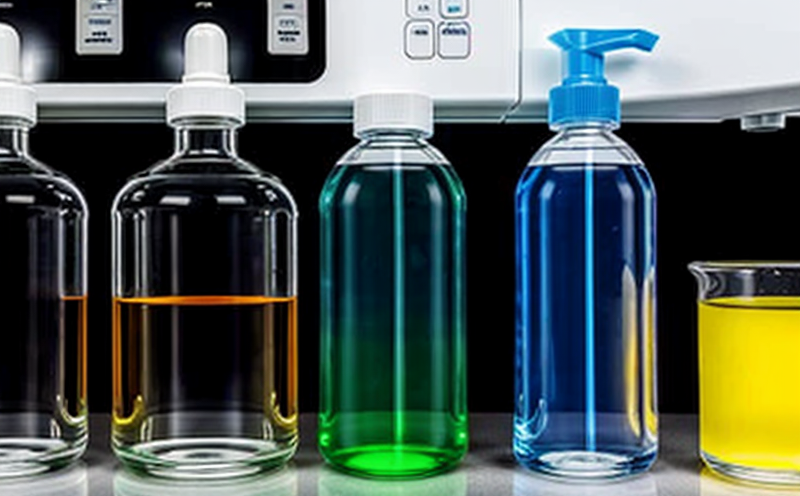Assessing the systemic toxicity of materials used in medical devices
Assessing Systemic Toxicity of Materials in Medical Devices A Crucial Service for Businesses
In the world of medical devices, the materials used to create these life-saving products are subject to rigorous testing and evaluation. One critical aspect of this process is assessing the systemic toxicity of materials used in medical devices. This laboratory service, provided by Eurolab, ensures that the materials used in medical devices meet the stringent safety standards required for human use.
What is Systemic Toxicity?
Systemic toxicity refers to the potential of a material or substance to cause harm when absorbed into the body through various routes, such as inhalation, ingestion, or skin contact. In the context of medical devices, systemic toxicity is particularly concerning because it can lead to adverse reactions, complications, and even long-term health effects.
Why Assess Systemic Toxicity in Medical Devices?
Assessing the systemic toxicity of materials used in medical devices is essential for several reasons
Patient Safety The primary concern when developing medical devices is ensuring patient safety. By evaluating the potential for systemic toxicity, manufacturers can minimize the risk of adverse reactions and ensure that their products are safe for human use.
Compliance with Regulations Regulatory agencies, such as the FDA in the United States and the EUs Medical Device Regulation (MDR), mandate testing for systemic toxicity as part of the medical device development process. Failure to comply with these regulations can result in product recalls, fines, and damage to a companys reputation.
Increased Efficiency By identifying potential issues early on, manufacturers can make informed decisions about material selection, reduce development timelines, and minimize costs associated with re-designs or recalls.
Enhanced Credibility Demonstrating a commitment to assessing systemic toxicity can enhance a companys credibility among customers, partners, and regulatory agencies.
Benefits of Using Eurolabs Systemic Toxicity Assessment Service
Eurolabs systemic toxicity assessment service offers numerous benefits to medical device manufacturers
Expertise Our team of experienced scientists and technicians have extensive knowledge of the latest testing protocols and methodologies.
State-of-the-Art Facilities Our laboratory is equipped with cutting-edge equipment, ensuring accurate and reliable results.
Comprehensive Testing We offer a range of tests to assess systemic toxicity, including in vitro cytotoxicity, genotoxicity, and biocompatibility studies.
Rapid Turnaround Times Our efficient processes ensure that results are delivered promptly, minimizing delays in product development.
Clear Reporting Our reports provide detailed information on the testing methods used, results obtained, and recommendations for material selection.
Key Benefits of Systemic Toxicity Assessment
Here are some key benefits of assessing systemic toxicity in medical devices
Reduced Risk of Product Recalls
Improved Patient Safety
Enhanced Regulatory Compliance
Increased Efficiency and Reduced Costs
Demonstrated Commitment to Quality and Safety
Frequently Asked Questions (FAQs)
Q What types of materials are commonly used in medical devices that require systemic toxicity assessment?
A Materials such as metals, polymers, ceramics, and elastomers may require testing for systemic toxicity.
Q How do you determine the level of systemic toxicity in a material?
A We use a combination of in vitro and in vivo tests to assess the potential for systemic toxicity. These include cytotoxicity assays, genotoxicity studies, and biocompatibility evaluations.
Q Can I perform systemic toxicity testing in-house or do I need to outsource it?
A While some companies may choose to perform in-house testing, outsourcing to a specialized laboratory like Eurolab can provide greater expertise, efficiency, and accuracy.
Q How long does the testing process typically take?
A The duration of the testing process varies depending on the specific tests required. However, we strive to deliver results within 2-6 weeks.
Q What are the regulatory requirements for systemic toxicity assessment in medical devices?
A Regulatory agencies such as the FDA and EUs MDR mandate testing for systemic toxicity as part of the medical device development process.
Conclusion
Assessing the systemic toxicity of materials used in medical devices is a critical aspect of ensuring patient safety, compliance with regulations, and maintaining a companys credibility. Eurolabs systemic toxicity assessment service offers expertise, state-of-the-art facilities, comprehensive testing, rapid turnaround times, and clear reporting. By choosing our service, manufacturers can reduce the risk of product recalls, improve patient safety, enhance regulatory compliance, increase efficiency, and demonstrate their commitment to quality and safety.




